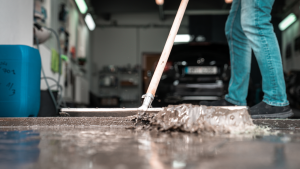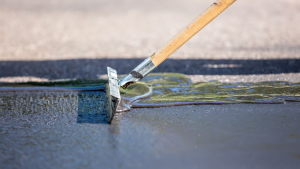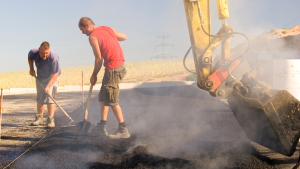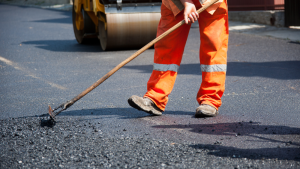Taking care of asphalt in the winter can be a hard and time-consuming job. But if you or an asphalt expert take good care of it, asphalt can look as good as new for a longer time without the usual harsh wear and tear during the cold winter months. If you don’t take care of asphalt properly in the winter, it will crack and get holes faster, which means you’ll have to fix it more often. There are a lot of inexpensive things you can do in the winter to make your asphalt last longer.
If you want your asphalt to last as long as possible, you should sealcoat it before winter. Seal coating helps asphalt pavement last longer by protecting it from water and other chemicals that could damage it. If you don’t sealcoat your asphalt, the air can dry it out. Also, this will cause the surface to crack and the asphalt to become brittle overall. Sealcoating is good for all asphalt roads in the winter if it is done right, and it is cheaper than the damage that can happen if it isn’t done. If you don’t sealcoat your asphalt, you might have to replace it all or fix a big part of it.
Seal Crack
You can stop the freeze-thaw effect from happening if you fix any cracks before water can freeze in them. This problem happens when the asphalt isn’t taken care of and small cracks let water seep down into the ground. If the temperatures are low enough, the water will freeze during the winter. The ice will then expand, making any cracks even bigger. When water freezes, it grows by about 9%, and this problem will happen more than once during the winter. A small crack could easily grow to be twice as big by the end of winter. If you don’t fix the crack right away, it can get bigger and bigger over time, making it more and more expensive to fix.
De-ice
Deicers like road salt are great for keeping asphalt in good shape during the winter because they melt snow. Chemical deicers can do a lot of damage quickly to asphalt that already has cracks or is weak. Still, if you want to re-pave your parking lot after winter, you can use road salt this winter.
Be Quick
The best way to keep the asphalt from getting worse over the winter is to find any problems with your pavement quickly. Before it gets cold, check carefully for small cracks and make sure to seal them all early, before the freeze-thaw effect can happen. You should also pay attention to bad weather and clear all snow and ice as soon as you can.
If you do these things to your asphalt this winter, it will look much better in the spring. After winter, any asphalt pavement will look great and last a lot longer because there will be fewer cracks, a nice seal coat, and no potholes. You can save a lot of money on asphalt costs if you take care of it properly. You can do it yourself or hire a professional like us to do it for you.







